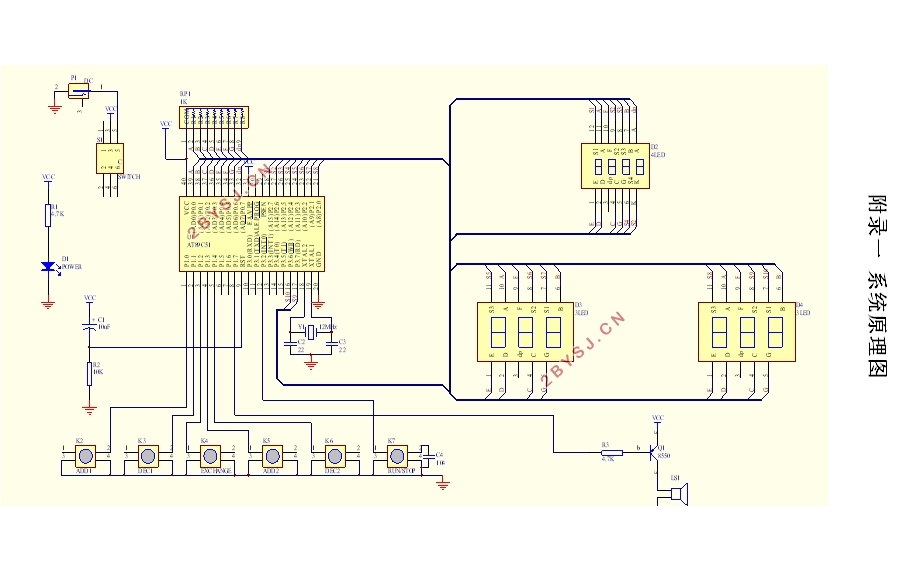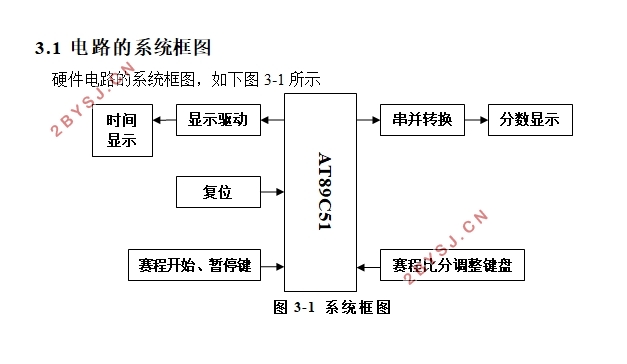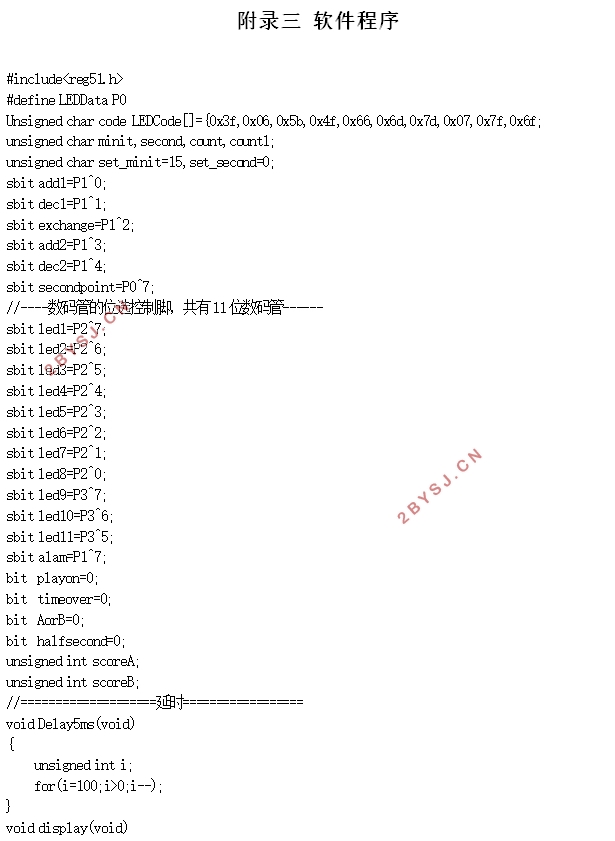基于单片机的篮球比赛记分牌设计
无需注册登录,支付后按照提示操作即可获取该资料.
基于单片机的篮球比赛记分牌设计(论文10000字)
摘要
现如今,随着社会人群生活水平的提高。他们在体育享受的要求也有了大幅度的提高。单位间,学校间,各种小团体的比赛日益增多,针对这种情况我设计了以单片机为核心的比赛电子记分牌。
本文论述的是基于51单片机的篮球比赛记分牌的模拟。能够显示记录时间,显示记录分数,甲乙两队显示的分数互换,以及计时结束发出报警功能。为了防止分数加错,我还特意设计了减分按钮,可以在比赛时任意加减分数。
本设计主要以单片机为基础,用四位一体时钟型共阴数码管来对比赛时间进行记录、三位一体共阴数码管对分数进行记录,即时的开始,暂停比赛,刷新分数。价格便宜人人都能接受,工作情况稳定,体积小携带容易,可广泛应用于篮球比赛计分领域。
关键词:单片机AT89C51;计时;计分;报警
BallGame T im ing and Scoring Designing Based onMCU
ABSTRACT
Now with the broad masses of the people living standard enhancement, their demand for sports has also significantly enhance the. Between units, between schools, all kinds of small groups of growing competition, in this case I designed the game of basketball scoreboard based on mcu.
In this paper, I introduced is the game of basketball scoreboard design based on 51 single chip microcomputer, can match timing, scoring two points, a and B swap, and finish timing alarm function. In order to prevent the scores and wrong, I also specially designed minus button, can match arbitrary addition and subtraction score.
My design is based on SCM, with four in one clock type common cathode led to record the game time, the Trinity common cathode led to record scores, instant start, pause the game, refresh fraction. Cheap price everyone can accept, work stability, small volume is easier to carry, and can be widely used in the field of basketball.
Keywords: MCUAT89C51;Timing;Scoring;Alarm



目录
摘要 I
ABSTRACT II
第一章 绪论 1
1.1 篮球记分牌的研究背景 1
1.2 篮球记分牌的设计意义 2
1.3 篮球记分牌的应用 2
第二章 设计要求和设计方案 3
2.1 设计要求 3
2.2 系统设计方案及元器件介绍 3
2.2.1 单片机型号选择 3
2.2.2 单片机简介 4
2.2.3 计时显示模块方案 8
2.2.4 计分显示模块方案 8
2.2.5 按键模块方案 8
2.2.6 蜂鸣器选择 9
2.2.7 电路设计的最终方案 9
第三章 硬件电路的设计 10
3.1 电路的系统框图 10
3.2 各个模块的硬件电路设计 12
3.2.1 单片机最小系统设计 12
3.2.2 计时模块的电路设计 12
3.2.3 计分模块的电路设计 13
3.2.4 蜂鸣器模块 14
第四章 系统的软件设计 16
4.1 程序总流程 16
4.1.1 程序流程概述 16
4.1.2 程序流程框图 16
4.1.3 系统设计流程图 17
4.1.4 单元模块设计 17
第五章 系统的组装与调试 19
5.1 硬件的组装 19
5.1.1硬件的焊接过程 19
5.1.2硬件的常见故障及检查调试 19
5.2 软硬件的调试 19
5.2.1 用Keil uVision3调试程序 20
5.2.2 Protus调试 20
5.2.3 软硬件联合调试 22
第六章 总结与展望 23
6.1 总结 23
6.2 展望 23
致谢 24
参考文献 25
附录一 系统原理图 26
附录二 系统实物图 27
附录三 软件程序 28
